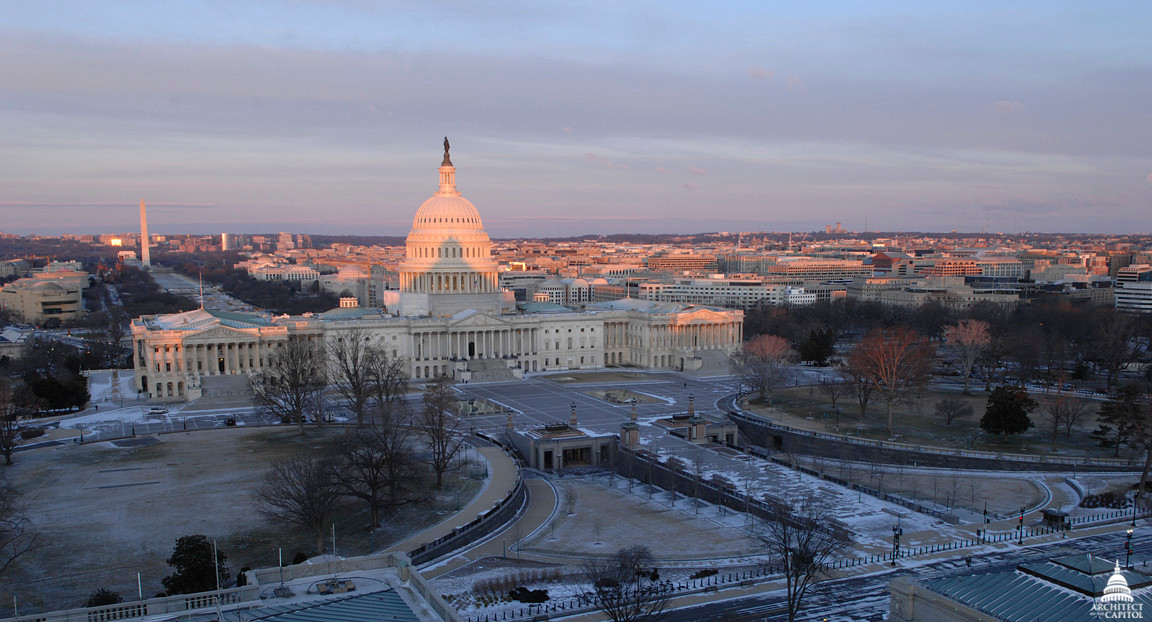House GOP Leaders Urge Engagement on Net Neutrality Bills

The smarter way to stay on top of broadcasting and cable industry. Sign up below
You are now subscribed
Your newsletter sign-up was successful
Republican House Energy & Commerce Committee leaders are urging their Democratic counterparts to engage on three net neutrality bills the Republicans have offered up, describing them as a "menu of options to get started" on a "bipartisan solution."
The Republicans, Energy & Commerce Committee ranking member Greg Walden (R-Ore.), Communications Subcommittee ranking member Bob Latta (R-Ohio) and Consumer Protection Subcommittee ranking member Cathy McMorris Rodgers (R-Wash.) wrote E&C Committee Chairman Frank Pallone (D-N.J.) and Communications Subcommittee Chairman Mike Doyle (D-Pa.) to call for compromise rather than a "Title II or bust" approach by activist groups.
The three bills were introduced following a Feb. 7 net neutrality oversight hearing. None would classify internet access as a Title II common carrier telecommunications service, which many Dems still say is necessary.
The bills did not get any love from Dems, and net neutrality groups minced no words, saying they were at best woefully lacking and at worst fake efforts promoted by ISP lobbyist "shills."
The bills are the Open Internet Act of 2019, introduced by Rep. Bob Latta (R-Ohio), ranking member of the subcommittee, a revival of a bill from Rep. Greg Walden (R-Ore.), former chair of the full committee, based on a bill offered up in 2015 by Sen. John Thune (R-S.D.) (then chair of the House Energy & Commerce Committee) and Rep. Fred Upton (R-Mich.), (then chair of the Communications Subcommittee); and one from Rep. Cathy McMorris Rodgers (R-Wash.) based on a Washington state net neutrality bill.
There now seems agreement on both sides for rules, enforced by the FCC, against blocking, throttling and anticompetive or consumer-unfriendly paid prioritization (which would leave room for public safety or health info prioritization). But that's where the twains no longer meet.
Walden conceded there were probably times when the Republicans should have accepted some offers, but the same went for the other side, he added, in talking up this latest legislative offer. He pointed out his bill is the same offer he made in 2015, which is to codify the FCC rules so they would not be subject to change by future commissions. That would mean no blocking, throttling or paid prioritization and ISP transparency about network practices. So, basically the 2015 Open Internet order but without Title II or the general conduct standard (see below). Walden said that offer had been on the table before that 2015 order was adopted.
The smarter way to stay on top of broadcasting and cable industry. Sign up below
He also said that bill was a starting point, and if they didn't like that, they could start with the Latta bill, which mirrors one offered up by then Democratic Energy & Commerce Committee chairman Henry Waxman in 2009, or Rodgers' bill.
Net neutrality activists, who generally argue that Title II is necessary to undergird such rules, were quick to dismiss the efforts as insufficient, including that codifying a small set of rules lacks the forward-looking aspect of the 2015 Open Internet Order's "general conduct standard," which gave the FCC the power to regulate conduct not falling under the rules but that impeded a free and open internet. The idea behind that standard was that the FCC could not anticipate all the kinds of conduct a rapidly changing and innovating tech platform could allow for.
Contributing editor John Eggerton has been an editor and/or writer on media regulation, legislation and policy for over four decades, including covering the FCC, FTC, Congress, the major media trade associations, and the federal courts. In addition to Multichannel News and Broadcasting + Cable, his work has appeared in Radio World, TV Technology, TV Fax, This Week in Consumer Electronics, Variety and the Encyclopedia Britannica.

